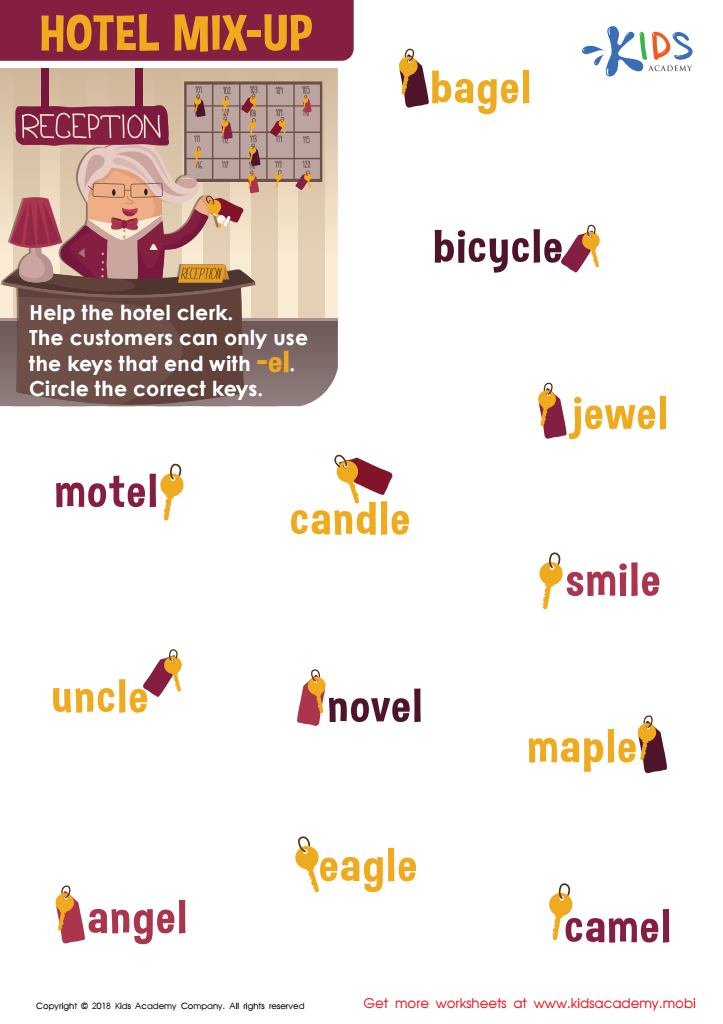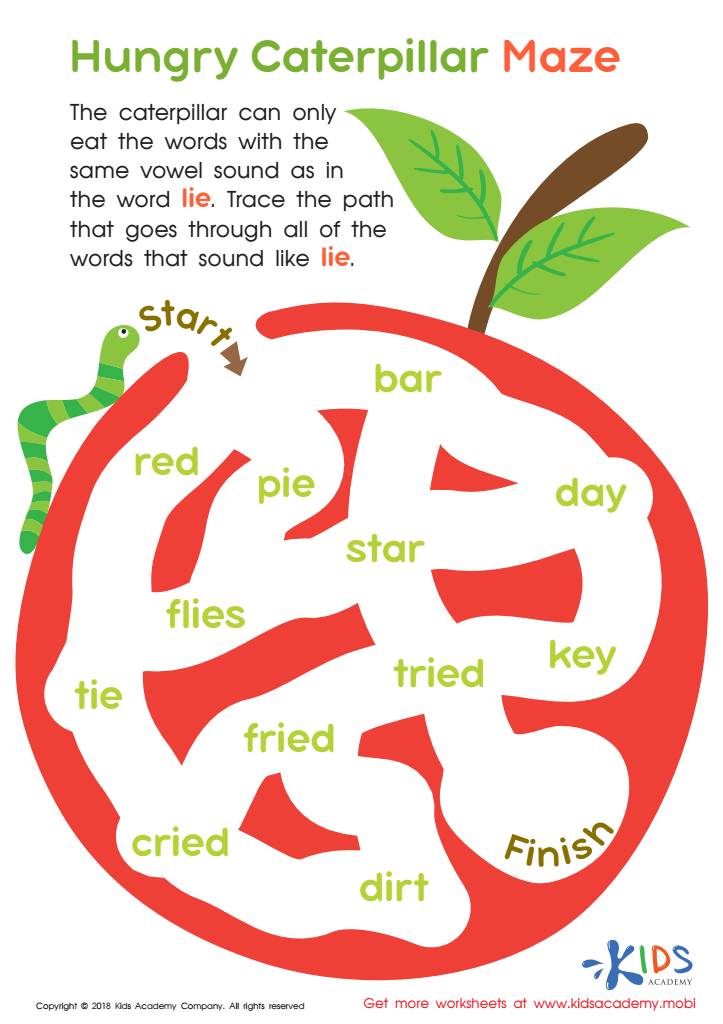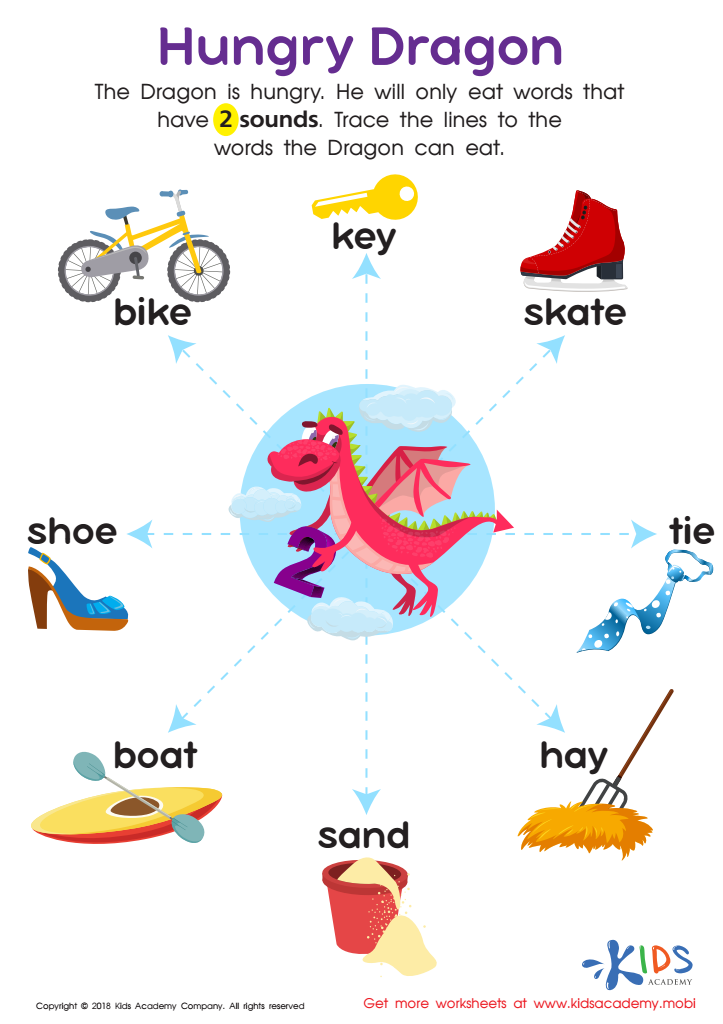Problem-Solving Skills Normal Phonics Worksheets for Ages 7-8
4 filtered results
-
From - To
Our Problem-Solving Skills Normal Phonics Worksheets for Ages 7-8 are expertly designed to blend essential phonics instruction with engaging problem-solving activities. These worksheets not only bolster reading fluency and comprehension but also enhance critical thinking and analytical skills. Ideal for young learners, the exercises involve identifying patterns, breaking down complex words, and synthesizing phonetic rules within a fun, interactive framework. By integrating puzzles and thought-provoking tasks, we ensure that learners stay motivated and challenged, paving the way for a solid foundation in both literacy and cognitive development. Perfect for classroom use or at home, these resources equip kids for academic success.


Hotel Mix-up Worksheet


Long Vowel Maze /o/ and /i/ Worksheet


Hungry Caterpillar Maze Worksheet


Hungry Dragon Worksheet
Problem-solving skills and normal phonics development are foundational aspects of early education for children ages 7-8. For parents and teachers, fostering these skills is crucial for several reasons:
First, problem-solving skills are essential for cognitive development. They help children learn how to approach and navigate challenges with patience and critical thinking. This foundational capability sets the stage for success in academic subjects such as mathematics, science, and even reading comprehension.
Second, normal phonics development is critical for reading. Phonics skills allow children to decode words, enhancing their ability to read fluently. Efficient readers can comprehend texts better, engage more with learning materials, and develop a lifelong love of reading. This pivotal ability directly impacts their overall academic performance and self-confidence in learning.
Furthermore, integrating phonics with problem-solving activities can enhance learning outcomes. Games and activities that require children to use problem-solving skills while practicing phonics can make learning more engaging and effective. For example, word puzzles and reading games marrying both skills sustain children’s interest and encourage interdisciplinary thinking.
Ultimately, a strong foundation in problem-solving and phonics prepares children not just for academic success, but for life. It equips them with the resilience, adaptability, and literacy skills necessary to tackle future challenges, fostering well-rounded development. Parents and teachers should therefore prioritize these areas to nurture confident, capable, and curious learners.
 Assign to My Students
Assign to My Students















